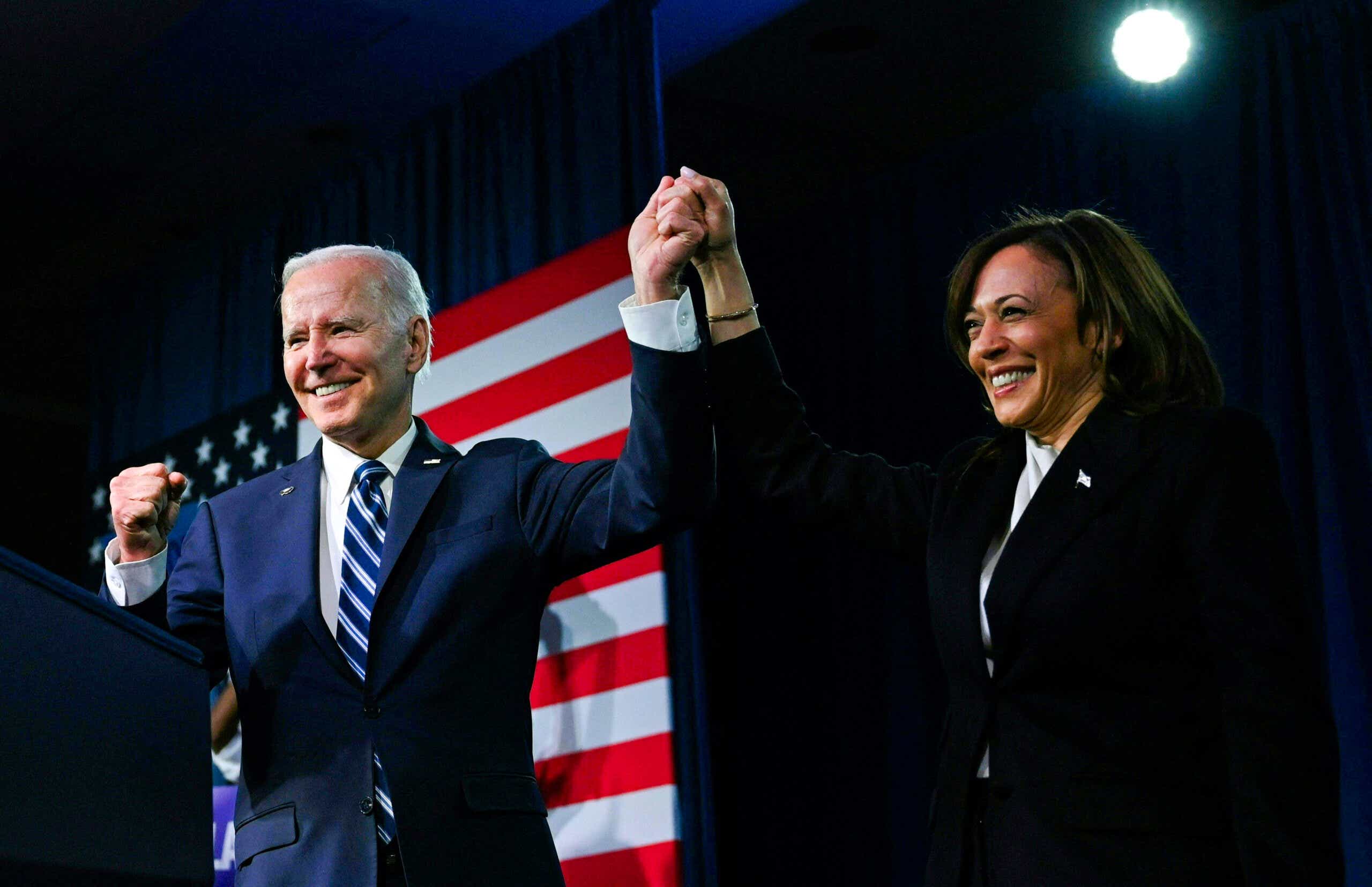After weeks of mounting pressure, including from high-ranking members of the Democratic Party, President Biden has dropped out of the race.
In a statement, the embattled Democrat wrote that he would not seek reelection and endorsed his vice president, Kamala Harris, to replace him at the top of the ticket.
Joe Biden announces he's not seeking reelection
"It has been the greatest honor of my life to serve as your president," Biden posted on social media. "And while it has been my intention to seek reelection, I believe it is in the best interest of my party and the country for me to stand down and to focus solely on fulfilling my duties as President for the remainder of my term."
Within minutes, Donald Trump took to social media, writing: "Crooked Joe Biden was not fit to run for President, and is certainly not fit to serve - And never was!"
A growing coalition of powerful Democrats had called for President Biden to step aside after his questionable performance on the debate stage. For three weeks he resisted, even as pressure from within his own party grew and crucial Democratic donors turned their backs on him. Now that he's withdrawn, the Democrats have less than a month to coalesce around a successor, and although Harris is currently the frontrunner, she could face a fight for the nomination.
Joe Biden endorses Kamala Harris
In a separate social media post, Biden endorsed Harris: "My very first decision as the party nominee in 2020 was to pick Kamala Harris as my Vice President. And it's been the best decision I've made. Today, I want to offer my full support and endorsement for Kamala to be the nominee of our party this year. Democrats — it's time to come together and beat Trump."
In the hours since, the VP has already racked up several other prominent endorsements, including Bill and Hillary Clinton, Washington Rep. Pramila Jayapal, and Wisconsin Sen. Tammy Baldwin.
In a statement, Harris thanked Biden for his "extraordinary leadership" and "decades of service to our country." She also said that she intends to "earn and win this nomination."
"I will do everything in my power to unite the Democratic Party — and unite our nation — to defeat Donald Trump and his extreme Project 2025 agenda," Harris said.
What happens next?
President Biden was supposed to officially accept the nomination next month at the Democratic National Convention, having earned 3,896 pledged delegates throughout the primaries. But now that he's thrown in the towel, he can't simply transfer those delegates to his running mate. Political insiders expect one of two things to happen next: Either the party rallies behind Harris or the Democrats hold an open convention, where the delegates will pick a candidate.
Harris is high up on the list of possible replacements for Biden. She's been vetted, has experience running a national campaign, and, crucially, she has access to the millions of dollars raised by the Biden-Harris campaign committee. If the party unites behind her, they could lock her in as the nominee before the Aug. 19 convention during a virtual roll-call vote. (This vote is not part of the typical nomination process, but was added this year to confirm Biden before Ohio's ballot deadline.)
Even though the clock is ticking to find a replacement, some have argued that the party would be better off with some competition for the nomination. There's a roster of relatively young, relatively popular potential candidates, like Michigan Gov. Gretchen Whitmer and California Gov. Gavin Newsom, though no one has thrown their hat into the ring yet. To do so, they'd need to get the signatures of at least 300 delegates.
The Democrats haven't held an open convention since 1968, which like this year's, was also held in Chicago. A vote would be held, and if a majority isn't reached, the 700 superdelegates would then be allowed to vote. Voting would continue, round after round, until someone wins a majority.
The chair of the Democratic National Committee, Jaime Harrison, said that the party would "undertake a transparent and orderly process" to move forward with a candidate "who can defeat Donald Trump." Harrison did not say more about the possibility of an open convention, simply that the American people would hear more "in short order."









